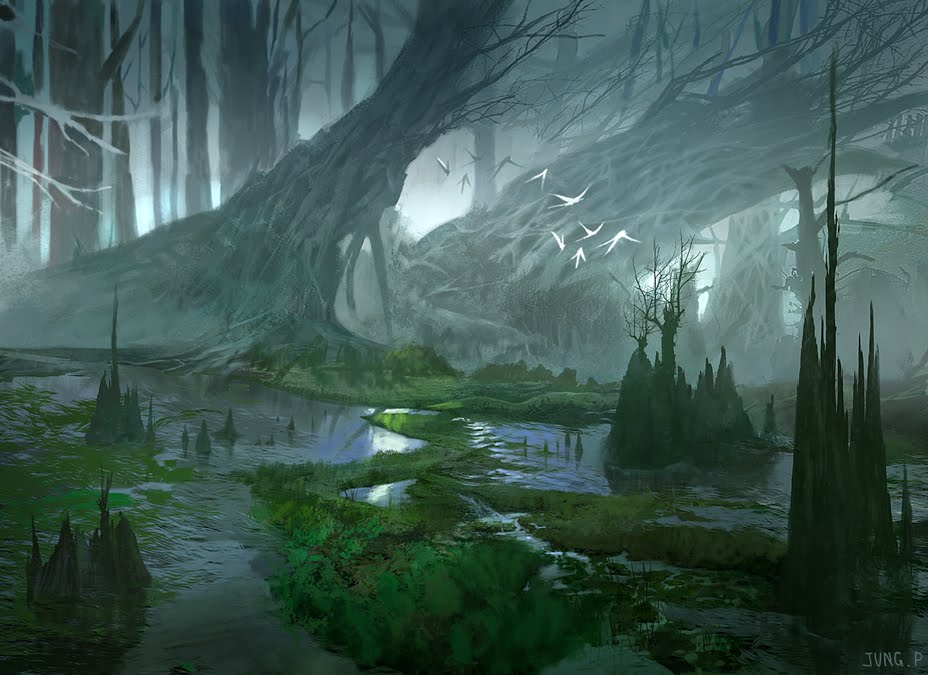One of the more common requests for help I see in various forums is aspiring new GMs asking for advice on how to get started. It’s a daunting task, and it’s hard to know where to start.
We’ve dispensed a lot of GMing advice via the podcast and blog over the years, but we’re hardly the only useful resource out there, so here’s a list of resources for the aspiring GM.
This may look daunting, so let me stress something upfront: you do not have to absorb all of this material before you start GMing! In fact, a lot of these resources won’t be useful until you’ve gotten started. My personal advice would be learn the system you want to GM, preferably play in it for at least a few sessions to get comfortable, read Robin’s Laws of Good Gamemastering (only 32 pages) and then give GMing it a try.
Good luck! May you find GMing as rewarding and enjoyable as we do.
-Peter
Books: General
Robin’s Laws of Good Gamemastering by Robin D. Laws: Probably the very first thing an aspiring GM should read, for two reasons: first, it’s a short, non-daunting volume at only 32 pages. Second, those 32 pages include an enormous amount of good advice. If it’s the only piece of published GMing advice you ever read, it’s probably enough.
Hamlet’s Hit Points by Robin D. Laws: This shows you how to break media (and your games) down into story beats. It’s a pretty challenging read, not because the language is obtuse or overly-academic, but because it really challenges you to look at stories through an unfamiliar lens.
The Functions of Role-Playing Games: How Participants Create Community, Solve Problems and Explore Identity by Dr. Sarah Lynne Bowman: We had Dr. Bowman on episode 111 to discuss the psychology around gaming, but none of us had read her book yet at that point, so there wasn’t a huge amount of overlap. Having now read her book, I’d say it’s a good thing for a GM to read, with the caveat that chapters 1-5 will be very familiar to long-time gamers. Chapters 6 and 7, however, have a lot of useful material to keep in mind while you’re GMing, particularly the different player archetypes.
Odyssey: The Complete Game Master’s Guide to Campaign Management by Phil Vecchione and Walt Chiechanowski: A system-agnostic book entirely dedicated to campaign management. As of this writing, I haven’t finished it yet, but it’s full of good advice so far.
Unframed: The Art of Improvisation for Game Masters compiled by Martin Ralya: A collection of essays by the likes of Robin D. Laws, Kenneth Hite, Emily Care Boss, and Vincent Baker (and those are just my personal favorites) about improvising while GMing. Highly, highly recommended.
Never Unprepared: The Complete Game Master’s Guide to Session Prep by Phil Vecchione: Another one I haven’t finished yet but have been impressed by the beginnings of.
The New Larousse Encyclopedia of Mythology: Not very new any more (out of print for decades, in fact) I like this one because it covers mythology from more than just the “usual places” of Greece/Rome, Egypt, and the Norse. Mythology books in general (and fairy tale collections as well) are good reference material for any GM, though, especially one running stories with fantastic elements.
Gaming Books
GURPS Horror, 4th Edition: Kenneth Hite does a fantastic rundown of the psychology behind various monsters. A fantastic read even if you never run a horror game or the GURPS system.
Hillfolk: Robin D. Laws’s Dramasystem shows up in here, and has a lot of useful advice for running dramatic scenes as opposed to procedural ones.
F.A.T.E Core System: Aspects and FATE chips are the two biggest takeaways here, but like Hillfolk, it’s also worth reading as an RPG that isn’t as combat-focused as some other popular systems (like D&D) are.
Microscope: Ben Robbins’s RPG is really more of a combination of story game and collaborative worldbuilding tool. That said: it belongs on every GM’s bookshelf! The process of building a setting together as a group is amazing.
Downfall: Caroline Hobb’s game is in the same general category as Microscope, but always includes a tragic end and it works differently. A neat game on its own and a handy way of building fallen civilizations for your game world.
YouTube Channels
Matthew Coville: There’s a lot to like about Matthew Coville. He’s an extremely experienced GM, which means he’s picked up a lot of tricks over the years, particularly if D&D is your system of choice. I also like how sincere (and often vulnerable) he is in his videos; you never have any reason to doubt his good faith. He’s also very engaging – his videos are very enjoyable to watch. The thing that I most like about him, though, is that he makes you want to GM so incredibly bad. The GMing itch gets just about unbearable watching his stuff, which is a good thing!
Geek and Sundry: These folks also have a lengthy video series from various experienced GMs such as Matthew Mercer of Critical Role. Also quite engaging and worth a watch.
Blogs:
The Angry GM: Angry is great. He gives out a lot of good advice, heavily leavened with humor and research. It’s fairly obvious that the vast majority of his fury is a persona, but that just makes it more entertaining.
Gnome Stew: A blog dedicated entirely to TTRPG topics. Well-written, interesting, and covers a great deal of different material. The authors behind Odyssey and Never Unprepared are regular contributors; Engine Press is the publishing arm of Gnome Stew.
Safety Concerns
Why Safety Tools Are Important To Me: Phil Vecchione covers a bunch of popular safety concepts in a nice, useful Gnome Stew post.
A Matter of Trust: Covers consent-based play and other safety concerns.
Playing Nasty Characters: Originally written for LARP, but contains plenty of good advice for playing villains without pushing it too far that applies to tabletop as well.
The X-Card: A useful tool for making sure the game stays comfortable for everyone.
Podcasts:
Fear the Boot: The longest-running RPG podcast out there has dispensed a lot of GMing advice over the course of its run.
Ken and Robin Talk About Stuff: Kenneth Hite and Robin D. Laws dispensing weekly gaming advice and talking about the sorts of stuff you’d want to put into your game like espionage and cryptozoology. Tons of fun and fantastic advice.
Obviously, we’ve also dispensed tons of GMing advice here on Saving the Game, too! (Both on episodes and in the blog.)
Websites:
World Anvil: A website designed to track and aggregate world building information for authors, GMs, and so on.
Inkarnate: A solid map-building tool.
Roll20: A useful tool purpose-built for gaming online. Our gaming group uses it for Grant’s weekly D&D game. It provides a collection of linked utilities for facilitating TTRPG play. We’re not even using half of what it can do and it’s still been phenomenally useful.
This List of GM links. Name generators, die rollers, system reference documents – it’s just a treasure trove of useful resources.




